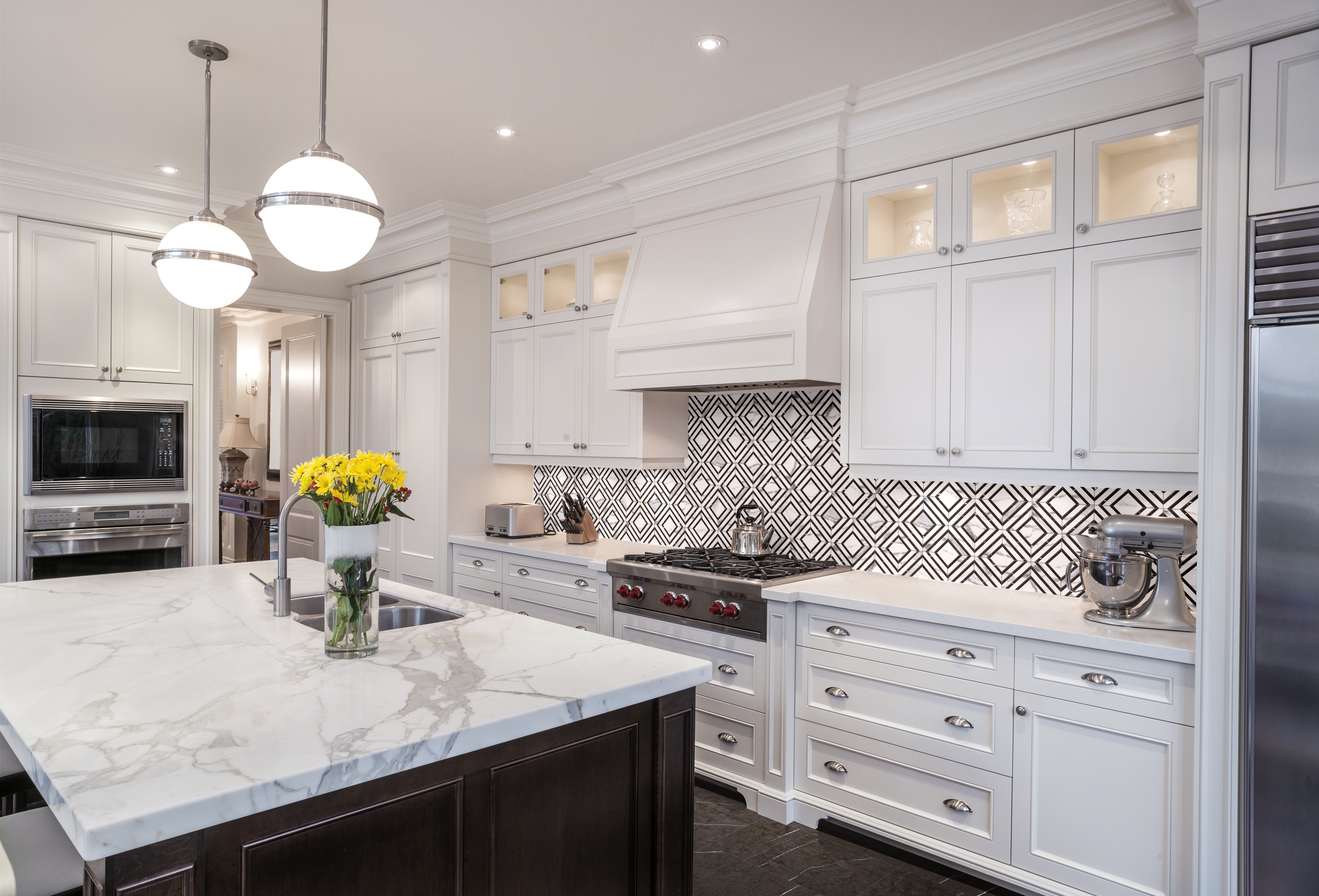First let’s define Solid and Engineered wood flooring…
Solid
Solid wood is milled from a single 3/4″ thick piece of hardwood. Because of its thickness, a solid hardwood floor can be sanded and refinished over several generations of use. Solid wood flooring expands and contracts with changes in your home’s relative humidity. Normally, installers compensate for this movement by leaving an expansion gap between the floor and the wall. Base molding or quarter round is traditionally used to hide the extra space.
Engineered
Engineered wood is produced with three to five layers of hardwood. Each layer is stacked in a cross-grain configuration and bonded together under heat and pressure. As a result, engineered wood flooring is less likely to be affected by changes in humidity and can be installed at all levels of the home.
Before deciding on Solid or Engineered hardwood flooring, consider these three factors:
Location, Location, Location…
The location of your hardwood flooring basically falls into three categories:
- On Grade – at grout level
- Above Grade – any second level or higher
- Below Grade – any floor below ground level, including basements or sunken living room.
Traditional solid hardwood flooring is not well suited for below-grade installations, because of the possibility of moisture issues. The construction of an engineered hardwood gives it enhanced structural stability that allows it to be installed at any grade level when a moisture barrier is used during installation.
What type of subfloor do you have?
If you plan to install over concrete, you must use an engineered product to ensure structural integrity. Solid wood flooring or Engineered flooring may be used over plywood, wood, or OSB subfloors.
Will there be moisture in the room?
If you are considering flooring for a bathroom where continuous moisture is expected, you will want to select a product other than hardwood. While the moisture resistance of an engineered hardwood makes it suitable for rooms below grade or grout level when installed with a moisture barrier, it is not advisable to install any hardwood flooring in a bathroom.
Living in Michigan we are all well aware of the rapid changing climate from day to day. Especially in the summers with the high humidity. Solid hardwood floors are not recommended for homes on the water without air conditioning or a way to control the humidity levels.

